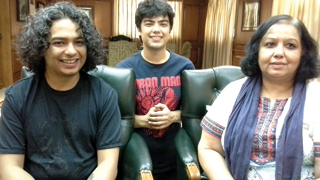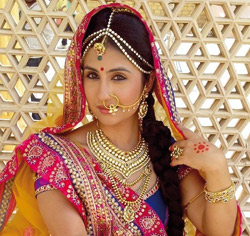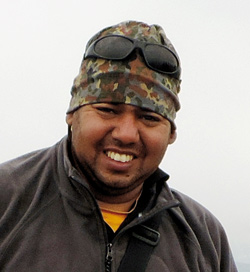At seven, I played teacher and dreamt of becoming one. When I was 10, I used to dig up flower beds hoping to find pottery from the Indus Valley Civilisation. I knew I wanted to become an archaeologist even before I learned how to spell it. By the time I was 12, exalted professions which served humanity or testified socially to your intelligence were made to enter my thought process. At 15, when I was asked to pick a subject stream, I picked science—mainly because I had the scores. Two years down and obviously I was taking medical entrances to become a doctor. Then, one U-turn and literature happened to me, because reading and writing were always present in my life—in the background, overridden but not dead. I dared to make an individual decision based on interest. Then what happened? Up went the well-wishing eyebrows—‘But what will you do after pursuing literature?’
As things stand
First, schools created lists of hierarchical distribution of students according to their scores. Toppers did science, the second rung commerce and the rest may please go sit in the Humanities section. Society measured brains in tandem with school. Parents often followed suit for they knew no better.
While a large section of society still measures an individual’s success by his pay package, there is a notable change between then and now. It is in so many children’s minds about career and the sense of identity. Children are seeing through the academic brainwashing, caring less about social pressures and following their hearts’ callings. Towed lines are being rejected and the will to be independent is much stronger than yesterday. Better exposure to opportunities through various media and a wider array of career choices to pick from help, as do professional fora for helping them cope with failure and disappointment. Bravo, kids!
Towed lines are being rejected and the will to be independent is much stronger than yesterday
But you wonder, what about the parents?
Troubles are known to come in battalions, but troubling thoughts are always present, especially in a parent’s mind, and even more when it has to do with their child’s future. While confidence in the child’s capability may exist, social and contextual factors make us worry. And worry makes us want to take each step with utter caution. What do parents do when children are ready to step out into unconventional careers? What goes on in their minds when their own children decide to plunge headlong into newness, leaving their secure cabins behind, swimming against the current? What arguments stem from misgivings, and how misgivings turn to acceptance [and even confidence] is something we need to explore.
I spoke to a few such parents in order to understand this social and emotional story that gets written in many contemporary households.
Decisions, differently made
 Says Ritu Lalit, a Delhi-based best-selling author,“Both my boys, individually and at different times, simply informed me of their decisions. There was no giving or taking of permission. My household doesn’t work that way! The parent-child equation is a democratic one. The authoritarian style of parenting is a thing of the past.” Her elder son Ishaan was a commercial pilot but is now a published author himself. The younger one, Kartik, is a Mechanical Engineer who helps those working in the field of arts and creativity with publicity.
Says Ritu Lalit, a Delhi-based best-selling author,“Both my boys, individually and at different times, simply informed me of their decisions. There was no giving or taking of permission. My household doesn’t work that way! The parent-child equation is a democratic one. The authoritarian style of parenting is a thing of the past.” Her elder son Ishaan was a commercial pilot but is now a published author himself. The younger one, Kartik, is a Mechanical Engineer who helps those working in the field of arts and creativity with publicity.
 With some others, the change of field seemed expected but still not as easy to accept. Chandrika is mother to Divyaalakshmi, a television actress known for her role of Rani Sajja Bai in Maharana Pratap and Bulbul in Shapath. “Divya was always fond of dancing and singing. Honestly, we tried to push her towards more meaningful art forms but she never took to it. We wanted her to complete her education before she got carried away with the glitter that movies showed her.” After an MA in Economics and an MBA, Divya decided to quit her job in a recruitment agency and join the entertainment industry. “We kept putting off her idea as just infatuation but somewhere we knew that a dream delayed would not mean a dream denied. The decision had been made in her head a long time back.”
With some others, the change of field seemed expected but still not as easy to accept. Chandrika is mother to Divyaalakshmi, a television actress known for her role of Rani Sajja Bai in Maharana Pratap and Bulbul in Shapath. “Divya was always fond of dancing and singing. Honestly, we tried to push her towards more meaningful art forms but she never took to it. We wanted her to complete her education before she got carried away with the glitter that movies showed her.” After an MA in Economics and an MBA, Divya decided to quit her job in a recruitment agency and join the entertainment industry. “We kept putting off her idea as just infatuation but somewhere we knew that a dream delayed would not mean a dream denied. The decision had been made in her head a long time back.”
 For some parents, there is no surprise element at all and decisions are made in consultation with family members. Like for Reyhan Datta, whose son Suniti works as an outdoor/wilderness educator and a consultant wildlife biologist. After a B.Sc. degree Suniti worked as a guide with Col. Wakefield at the Kabini River Lodge at Nagarhole, Karnataka and then studied at the Wildlife Institute of India in Dehradun. “It did not come as a surprise when he wanted to work with wildlife. We had seen his love for the subject ever since he was a little boy,” she says. “I felt Suniti must continue with what he wants to do.”
For some parents, there is no surprise element at all and decisions are made in consultation with family members. Like for Reyhan Datta, whose son Suniti works as an outdoor/wilderness educator and a consultant wildlife biologist. After a B.Sc. degree Suniti worked as a guide with Col. Wakefield at the Kabini River Lodge at Nagarhole, Karnataka and then studied at the Wildlife Institute of India in Dehradun. “It did not come as a surprise when he wanted to work with wildlife. We had seen his love for the subject ever since he was a little boy,” she says. “I felt Suniti must continue with what he wants to do.”
“Sometimes, new decisions fit old bills”, says Reyhan, whose family always believed that children should follow their noses, “This was an unconventional area where he could contribute a great deal, especially when teaching school children. He is a good teacher, but not a person who would sit and do corrections! Yes, we require money but at the same time, we must do what we enjoy.”
Of universal misgivings and unconditional support
How interesting it is to realise that fears to do with children’s futures are similar across different kinds of families and career choices. The idea of financial security looms as an overarching concern common to most parents. Then, the family’s and individual’s place in society and narratives of gender and givens like the institution of marriage further create a maze around a child’s decision. Overall, the wish for safety and security refuses to leave the parents’ lips.
For some parents, there is no surprise element at all and decisions are made in consultation with family members
When Divya quit her job in Mumbai to audition for roles in Bollywood, her parents wanted to take her back to her protected small-town life immediately. “Sitting far away with a daughter jobless in Mumbai was not our idea of being parents,” says Chandrika. Even though they extended financial support to their daughter, as parents their misgivings to do with the industry and its popular projection continued. “Casting couches, safety, erratic working hours and the moral police. Fodder for a scornful society! Acting as a career option has been stereotyped as a big bad ogre. So much so that neighbours worry more about her getting married than we do!” she laughs.
Ritu had a different idea in mind. “Histrionics, tears, and a drama mama!” greeted her sons’ decisions to quit well-established jobs for unconventional ones. “I was not in agreement because there is a part of me that wants them to be safe. You know, a regular salary, provident fund, pension are not things to be taken lightly. To that end, I had ensured that both of them got proper professional degrees. I am a single mother and I give a lot of importance to steady jobs. However, if what my sons do makes them happy, I am with them. Simple.”
The silk we can draw from these accounts
- Children are very determined and focussed these days. Their determination needs to be given a chance, and also their talent. You may hang a tiny tag of ‘Terms and Conditions apply’ on them, but let them own their decisions. It will make them feel empowered and responsible. After all, careers and life paths are a personal choice.
- No wife and husband in the same situation will think alike as a matter of rule [especially if once upon a time opposites attracted]. Parents need to talk it out between themselves and put up a united front for the child. Imagine what havoc a house divided can play on a child’s mind. No matter what the challenges, you are parents together, not apart.
- At a later stage, you may worry about how you can encourage them in a field you know little about. You can’t! Try arriving at common family ideals and promoting them—be it about working hard or doing quality work. Unlike umbrellas of values, which were once passed down ready-made, family ideals are now being charted by discussion and with equal voice given to all members of the house. List yours, together. That’s how Reyhan did it with her family, didn’t she?
- The times belong to them, not to us parents. This is what Chandrika had to say when I asked her if she could have been an actress too: “Impossible. I remember I once wore bell-bottoms, puffed up my hair and posed for a picture in the studio. That was the closest I came to feeling like a celebrity!”
- Don’t just encourage them, support them too. Where society views unconventional careers with suspicion and criticism, children braving it out need support publicly too. Let them know that no well-wishing neighbour can dilute your support for your own child. Let them never feel devoid of your trust. Support [or lack of it] can make all the difference. As Ritu says, “Remember how people laughed at Bisleri when they began bottling water? Well, now they are called pioneers!”
We often say how children are growing up faster these days, tasting forms of freedom which we as parents did not, once upon a black-and-white time. However, if we notice, parents are increasingly donning newer skins too. Accepting and adopting the times they cannot fully call their own. Or is it possible that they are coming into their own and realising their long-lost dreams? By picking the cameras on their own, or letting their children freely go into the wild with theirs? Either way, we’re all growing up as we grow older. What better to ask!
 Spot an error in this article? A typo maybe? Or an incorrect source? Let us know!
Spot an error in this article? A typo maybe? Or an incorrect source? Let us know!
